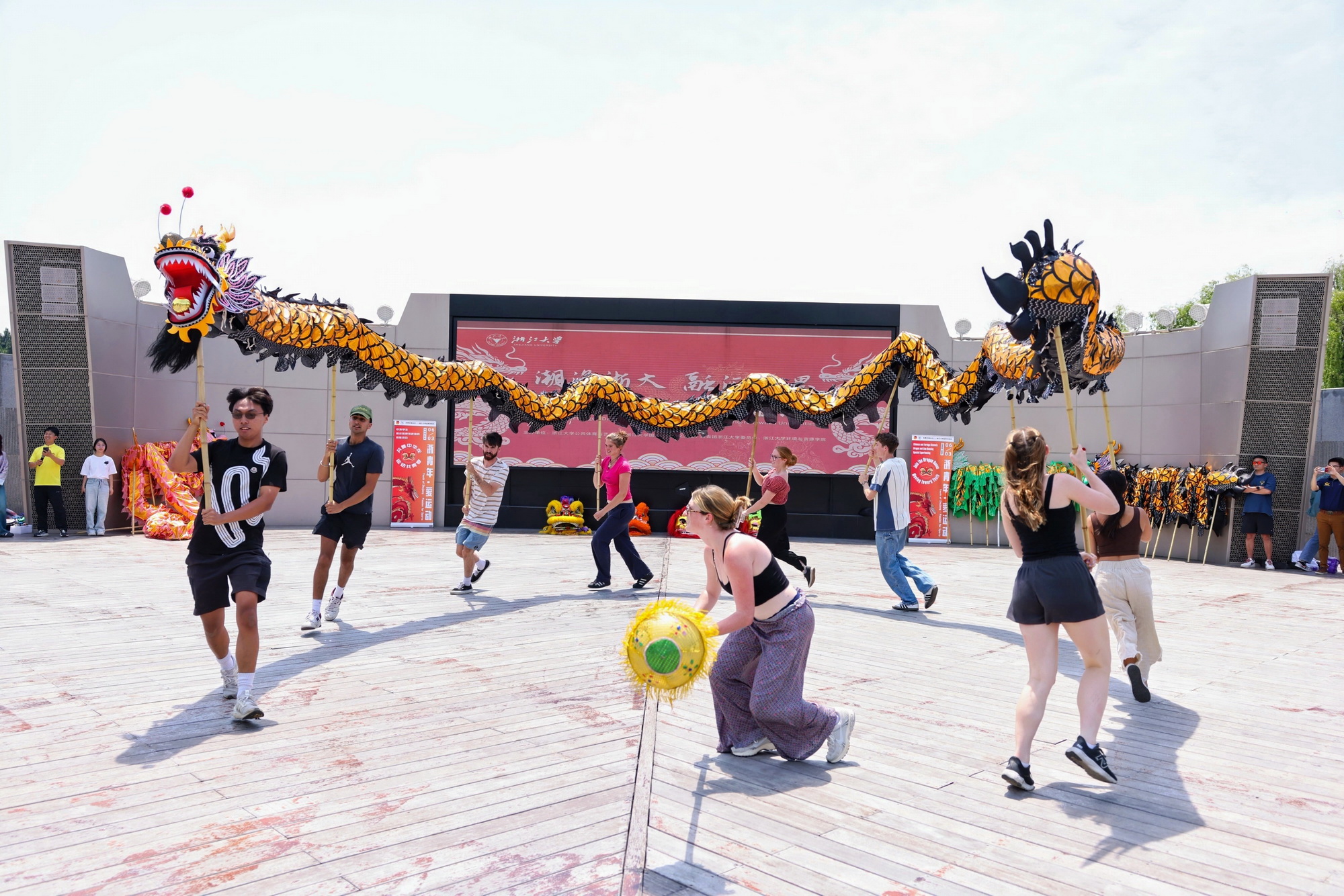|
|
|
|
November 25, 2024 -Monday |
|
|
|
 |
|
|
|
|
CHINA'S ZHEJIANG UNIVERSITY EMBRACING THE WAVE OF GLOBAL CULTURAL EXCHANGES
Wednesday 12/06/2024
AsiaNet 0200201
 On June 10, 2024, Zhejiang University (ZJU) celebrated the Dragon Boat Festival. On June 10, 2024, Zhejiang University (ZJU) celebrated the Dragon Boat Festival.
HANGZHOU, China, June 12, 2024 /Xinhua-AsiaNet/--
On June 10, Zhejiang University (ZJU) in Hangzhou, located in East China's Zhejiang province, celebrated the Dragon Boat Festival, a traditional Chinese holiday highlighted by dragon boat races in honor of the ancient poet Qu Yuan. During the festivities, ZJU hosted the Whiffenpoofs from Yale University, the world's oldest and best-known collegiate a cappella group. Together with ZJU's Wenqin Chorus, they performed choral pieces for the faculty and students, adding a vibrant cultural dimension to this cherished festival.
A week prior to the festival, students from global leading universities, including Harvard University, Yale University, UC Berkeley, Nanyang Technological University, the University of Tokyo, Yonsei University, and the University of Cambridge, converged at Zhejiang University, one of China's oldest and most prestigious higher education institutions.
During the campus tour, international students enjoyed the dragon and lion dances, watched traditional opera and folk music performances, and tried their hand at calligraphy and seal-engraving. They also visited ZJU's Museum of Art and Archaeology, which featured an exhibition on Asian civilizations along the Silk Road. With over 210 artifacts spanning five thousand years, the exhibition provided the students with insights into the rich history and cultural exchange of Asian societies.
These cultural immersions followed their participation in the 2024 International Elite Universities Water Sports Open, held on June 1-2. Co-organized by Zhejiang University, the event featured such competitions as a dragon boat 12-athlete 200m race, and a recreational kayak 200m race.
"The dragon boat carries rich cultural connotations and symbolism," said Du Jiangfeng, president of Zhejiang University, at the opening ceremony of the event. "It represents the Chinese nation's unremitting pursuit of and good wishes for promoting world peace and building a community with a shared future for mankind."
"By using dragon boats as a medium, we aim to promote dialogue among international youth and underscore our shared goals," he added.
This sentiment was echoed by participants, including Ruslan Pavlyshyn from the University of Cambridge, who shared his enthusiasm about his first dragon boat experience. "I learned how to race and even came not last. We are very proud of our achievement and the opportunity to learn about this wonderful tradition," he said.
Loann Marquant from Harvard University also expressed fascination with the cultural depth discovered during his visit. "All the cultural aspects I've discovered personally about China have been profoundly interesting to me," he stated.
Extending its cultural exchanges beyond its campus, Zhejiang University has launched a series of cultural initiatives in Europe since the beginning of this year, presenting the Comprehensive Collection of Chinese Ancient Paintings to the partner universities and cultural institutions in Italy, France, and Hungary. Additionally, a special exhibition of Song Dynasty paintings from the collection was held in France, drawing significant attention and showcasing the profound charm of traditional Chinese art.
In April this year, on the 700th anniversary of Marco Polo's passing, who was once awe-inspired by his visit to Hangzhou, Zhejiang University helped curate China's national pavilion in the 60th Venice Biennale in Venice, Italy. The exhibition not only showcased cultural diversity but also conveyed the values of harmony in diversity rooted in Chinese culture.
More than 700 years ago, Marco Polo was a pioneer in facilitating the cultural exchange between East and West, followed by generations of friendly envoys. Today, as Zhejiang University continues to champion the Global Civilization Initiative, it remains at the forefront of fostering international cooperation and cultural exchanges, strengthening ties between East and West through shared cultural endeavors.
Source: Zhejiang University
--BERNAMA
|
|
|
|
|
|